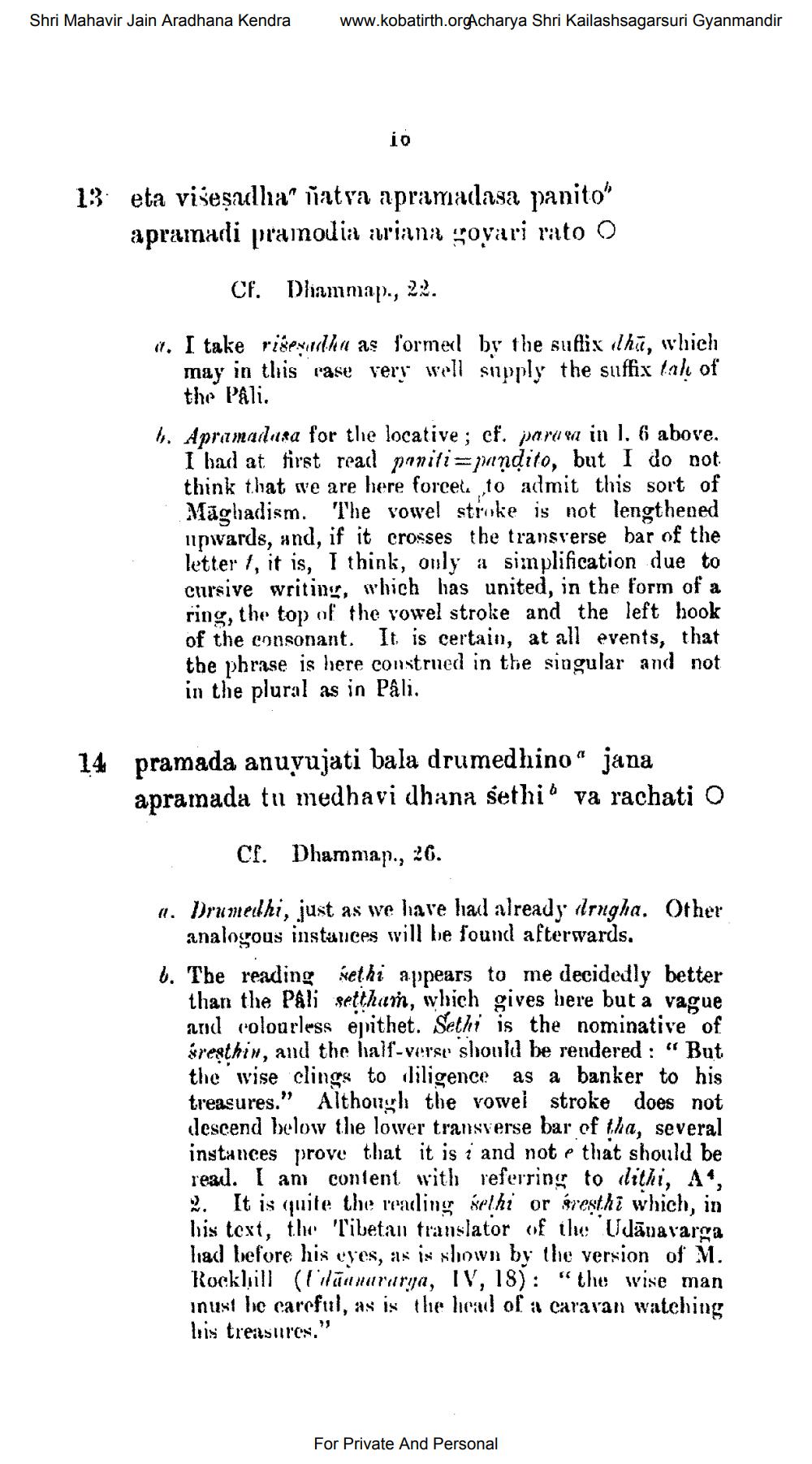________________
Shri Mahavir Jain Aradhana Kendra
www.kobatirth.orgAcharya Shri Kailashsagarsuri Gyanmandir
13
eta višeșuha" natra apramadasa panito" apramadi prainodia ariana goyari rato o
Cf. Dliammap., 22.
. I take riseuilha as formed by the suffix ithic, which
may in this case very well supply the suffix take of
the PAli. 6. Apromailusa for the locative; cf. parova in 1. 6 above.
I had at first read paniti=pandito, but I do not think that we are here forcel to admit this sort of Māghadism. The vowel stroke is not lengthened lipwards, and, if it crosses the transverse bar of the letter 1, it is, I think, only a simplification due to cursive writing, which has united, in the form of a ring, the top of the vowel stroke and the left hook of the consonant. It is certain, at all events, that the phrase is here construed in the singular and not in the plural as in Pali.
14
pramada anuvujati bala drumedhino“ jana apramada tu medhavi dhana sethi va rachati o
Cf. Dhammap., 26.
a. Drumeilhi, just as we have had already longha. Other
analogous instances will be found afterwards. 6. The reading sethi appears to me decidedly better
than the Pali setthan, which gives here but a vague and colourless epithet. Sethi is the nominative of Áreathin, and the half-verse should be rendered : " But the wise clings to diligence as a banker to his treasures." Although the vowel stroke does not descend below the lower transverse bar of tha, several instances prove that it is i and not e that should be read. I am content with referring to lithi, A', 2. It is quite the reading selhi or sreşthi which, in his text, the Tibetan translator of the Udāvavarga had before his eyes, as is shown by the version of M. Rocklill (Ciūnnururya, IV, 18): "the wise man inust lic careful, as is the head of a caravan watching his treasures."
For Private And Personal




